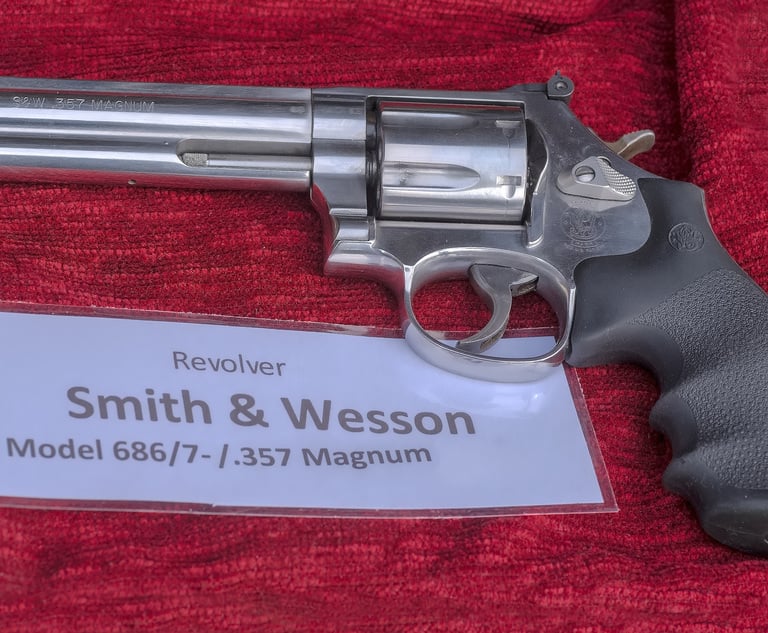 Allison Brown and Morton Dubin/courtesy photos
Allison Brown and Morton Dubin/courtesy photosAfter Johnson & Johnson Lawyer Scolded By Judge, Talc Trial Resumes With New Defense Team
Allison Brown of Skadden and Morton Dubin of Orrick were in Middlesex County Superior Court to represent Johnson & Johnson at openings in the punitive damages phase of the case.
January 14, 2020 at 05:28 PM
5 minute read
Johnson & Johnson had a new defense team in New Jersey court Tuesday as the punitive damages phase got underway in the case of four users of J&J talc products that previously yielded a $37 million compensatory damages verdict.
Allison Brown of Skadden, Arps, Slate, Meagher & Flom and Morton Dubin of Orrick, Herrington & Sutcliffe were on hand in Middlesex County Superior Court in New Brunswick to represent Johnson & Johnson at openings in the punitives phase.
Diane Sulllivan of Weil, Gotshal & Manges handled trial proceedings for the company in the compensatory damages phase and made headlines when her remarks to jurors drew criticism from the bench.
Brown and Dubin, experienced talc trial attorneys themselves, each declined to comment when asked the reason for changes at the defense table. A Johnson & Johnson spokeswoman, Kimberly Montagnino, said the change was "due to scheduling." John Garde of McCarter & English also represents J&J.
In the trial's first phase, Sullivan's entire closing argument was stricken by Superior Court Judge Ana Viscomi, who said Sullivan "denigrated" plaintiffs' counsel, calling them "sinister" and "attacking the profession." Johnson & Johnson moved for a mistrial based on the judge's action. Viscomi denied the mistrial motion but has yet to put her reasons on the record.
Brown said in her opening statement Tuesday that Johnson & Johnson had "hired and relied on the best outside experts" in its ongoing efforts to ensure the safety of its talc products. One such expert, Walter McCrone, who conducted studies finding the company's talc free of asbestos, was the same expert called on by others to evaluate hair samples from Beethoven and Napoleon and to analyze what was thought to be Jesus Christ's burial cloth, Brown noted.
Brown discussed studies in technical detail, projecting documents on the screen for jurors to see, including memos from experts.
She told jurors that "very serious allegations are being made against people working at J&J."
"Even though it's a corporation, it's made up of people," Brown said. "J&J believed internally exactly what it was telling its customers."
Dubin and Brown are no stranger to talcum powder litigation. In March 2019 they obtained a defense verdict in another mesothelioma case against Johnson & Johnson in Middlesex County. In May 2019, Brown scored a defense verdict for Johnson & Johnson in a South Carolina talc case. And in 2017, Dubin received another defense verdict in a mesothelioma case in Los Angeles.
Chris Panatier of Dallas-based Simon Greenstone Panatier, speaking for the plaintiffs, told the 10 jurors about the prior $37 million award, and said their job was to weigh whether this was an exceptional case where punitives were warranted.
"The evidence is going to be that this is that case, if there ever was a case. Our position is that the time to do this is now because this is ongoing—it [talc] continues to be sold today, and they have not changed their behavior. They don't have to intend to hurt people if they act with reckless disregard. That's what we have to prove," said Panatier.
Panatier said Johnson & Johnson has long known that its talc products contained asbestos, but continued selling those projects because it owned a large mine in Vermont from which the asbestos-laden talc came. He projected onto a screen for jurors a Johnson & Johnson company memo referencing its "large investment" in the mine and said product sales continued because baby powder is known in the company as "the franchise, the flagship, the cornerstone and the sacred cow."
"This was the iconic product for J&J, this and baby shampoo and Band-Aids. It was the reputation of the company," Panatier said.
To avoid public controversy over the asbestos in its talc products while also appearing to take the issue seriously, Panatier said, Johnson & Johnson developed tests that "didn't ask questions," using X-ray defraction tests and electron microscope tests that were not sensitive enough to detect asbestos in talc.
"When we talk about reckless disregard for other people, this is what we were talking about," Panatier said.
Panatier's co-counsel, Christopher Placitella of Cohen, Placitella & Roth in Red Bank, New Jersey, introduced the jury to David Ethridge, one of the plaintiffs, a Presbyterian minister from Virginia who was present in the courtroom. Placitella projected a photo of Ethridge, displaying a surgical scar that ran vertically down his chest and abdomen, that was the aftermath of surgery to treat his mesothelioma.
Another of the plaintiffs, Will Ronning, who testified in the compensatory damages phase, died on Oct. 5, 2019, leaving behind a wife and two young children, Placitella noted. "Hope is part of the fuel a human uses to survive and get through hard times. When hope is taken away, the curtain of life begins to close. For Will Ronning, there is no more hope," Placitella said.
The $37.3 million compensatory damages award to the four plaintiffs came in September 2019. A different jury awarded $7.25 million to Douglas Barden and his wife, Roslyn Barden; $9.45 million to Etheridge and his wife, Darlene Etheridge; $14.7 million to D'Angella McNeill; and $5.9 million to Ronning and his wife, Elizabeth Ronning.
This content has been archived. It is available through our partners, LexisNexis® and Bloomberg Law.
To view this content, please continue to their sites.
Not a Lexis Subscriber?
Subscribe Now
Not a Bloomberg Law Subscriber?
Subscribe Now
NOT FOR REPRINT
© 2025 ALM Global, LLC, All Rights Reserved. Request academic re-use from www.copyright.com. All other uses, submit a request to [email protected]. For more information visit Asset & Logo Licensing.
You Might Like
View All

Class-Action Suit Filed Against Jaguar for Claims of Defective Windshields in Land Rover Defender

Fortune 500 Company Sues Metals Supplier Alleging It Used Proprietary Info Obtained During Bidding Process to Poach Talent

In Split Ruling, 3rd Circuit Declines to Halt Consumer Fraud Probe of Gunmaker
5 minute readLaw Firms Mentioned
Trending Stories
Who Got The Work
Michael G. Bongiorno, Andrew Scott Dulberg and Elizabeth E. Driscoll from Wilmer Cutler Pickering Hale and Dorr have stepped in to represent Symbotic Inc., an A.I.-enabled technology platform that focuses on increasing supply chain efficiency, and other defendants in a pending shareholder derivative lawsuit. The case, filed Oct. 2 in Massachusetts District Court by the Brown Law Firm on behalf of Stephen Austen, accuses certain officers and directors of misleading investors in regard to Symbotic's potential for margin growth by failing to disclose that the company was not equipped to timely deploy its systems or manage expenses through project delays. The case, assigned to U.S. District Judge Nathaniel M. Gorton, is 1:24-cv-12522, Austen v. Cohen et al.
Who Got The Work
Edmund Polubinski and Marie Killmond of Davis Polk & Wardwell have entered appearances for data platform software development company MongoDB and other defendants in a pending shareholder derivative lawsuit. The action, filed Oct. 7 in New York Southern District Court by the Brown Law Firm, accuses the company's directors and/or officers of falsely expressing confidence in the company’s restructuring of its sales incentive plan and downplaying the severity of decreases in its upfront commitments. The case is 1:24-cv-07594, Roy v. Ittycheria et al.
Who Got The Work
Amy O. Bruchs and Kurt F. Ellison of Michael Best & Friedrich have entered appearances for Epic Systems Corp. in a pending employment discrimination lawsuit. The suit was filed Sept. 7 in Wisconsin Western District Court by Levine Eisberner LLC and Siri & Glimstad on behalf of a project manager who claims that he was wrongfully terminated after applying for a religious exemption to the defendant's COVID-19 vaccine mandate. The case, assigned to U.S. Magistrate Judge Anita Marie Boor, is 3:24-cv-00630, Secker, Nathan v. Epic Systems Corporation.
Who Got The Work
David X. Sullivan, Thomas J. Finn and Gregory A. Hall from McCarter & English have entered appearances for Sunrun Installation Services in a pending civil rights lawsuit. The complaint was filed Sept. 4 in Connecticut District Court by attorney Robert M. Berke on behalf of former employee George Edward Steins, who was arrested and charged with employing an unregistered home improvement salesperson. The complaint alleges that had Sunrun informed the Connecticut Department of Consumer Protection that the plaintiff's employment had ended in 2017 and that he no longer held Sunrun's home improvement contractor license, he would not have been hit with charges, which were dismissed in May 2024. The case, assigned to U.S. District Judge Jeffrey A. Meyer, is 3:24-cv-01423, Steins v. Sunrun, Inc. et al.
Who Got The Work
Greenberg Traurig shareholder Joshua L. Raskin has entered an appearance for boohoo.com UK Ltd. in a pending patent infringement lawsuit. The suit, filed Sept. 3 in Texas Eastern District Court by Rozier Hardt McDonough on behalf of Alto Dynamics, asserts five patents related to an online shopping platform. The case, assigned to U.S. District Judge Rodney Gilstrap, is 2:24-cv-00719, Alto Dynamics, LLC v. boohoo.com UK Limited.
Featured Firms
Law Offices of Gary Martin Hays & Associates, P.C.
(470) 294-1674
Law Offices of Mark E. Salomone
(857) 444-6468
Smith & Hassler
(713) 739-1250






